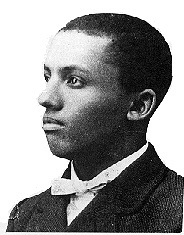It’s Black History Month, so I am continuing with the series of posts regarding Shaw resident and Father of Black History, Carter G. Woodson and his book The Mis-Education of the Negro, published in 1933. Don’t let the title fool you this is about church.
Religion is but religion, if the people live up to the faith they profess.- Carter G. Woodson
Wikipedia uses as a citation for the claim that Woodson was an outspoken critic of the Christian Church a site that provides no deep research to back up that claim. Woodson was an expert in the subject of the Black church, having had written The History of the Negro Church, published in 1921. I’m attempting to get through this book. It isn’t as easy of a read as Mis-Education.
What little I’ve read, I see him more of an agnostic, maybe light atheist. Like modern atheists who see a general value of a theologically based society (preferably Christian) but who do not believe in a deity. Not the fire breathing New Atheist type atheists.
In this chapter I can see where Woodson sees a great value in the Black Church because, “the Negro church is the only institution the race controls.” Once again he is annoyed at the educated African Americans (when isn’t he?) who leave the Negro church for more “ritualistic” denominations. Those being Catholic and Episcopal churches. Me: Guilty as charged. Mainly because Black people church is too damned long.
Woodson mentions he once visited ” in Washington, D. C., one of the popular Negro churches with a membership of several thousands“. I wonder was it maybe Shiloh Baptist? I mean he wouldn’t have to cross the street to pop in. Anyway, at this unnamed Black church he could only spot two college graduates in attendance, and they were only there to get something (fund raising and charity).
I can read Woodson’s frustration with the Black church. “The Negro church, however, although not a shadow of what it ought to be, is the great asset of the race.” He sees the church’s potential as an organizing body and how it could serve the Black race (theology shmeology), but can’t ignore the hypocrisy, charlatan preachers, and other human failings and shortcomings that come along with the Black church and church in general.
Let’s ignore Woodson’s lack of adherence to any faith and get to the topic of the book and this chapter, criticizing college educated Black people. Black church was where the Black masses were. It was the most powerful institution controlled by African Americans. Where were the “mis-educated” educated Afro-Americans, not in the Black Baptist and Black Methodist churches. A theme throughout The Mis-Education of the Negro is that the college educated Black people lose contact and are out of touch with the common Black person.
Woodson pointed out that the problem with the Catholic and Episcopalian churches was that a Black man’s rise in those denominations was limited. This problem has been since rectified. The current presiding Archbishop of the Episcopal church is an African American man, Michael Curry. And the current Archbishop of Washington, DC, Cardinal Wilton Gregory (the 1st Black American cardinal) heads the Roman Catholic diocese. There has been some advancement for African Americans since Woodson published his book.

